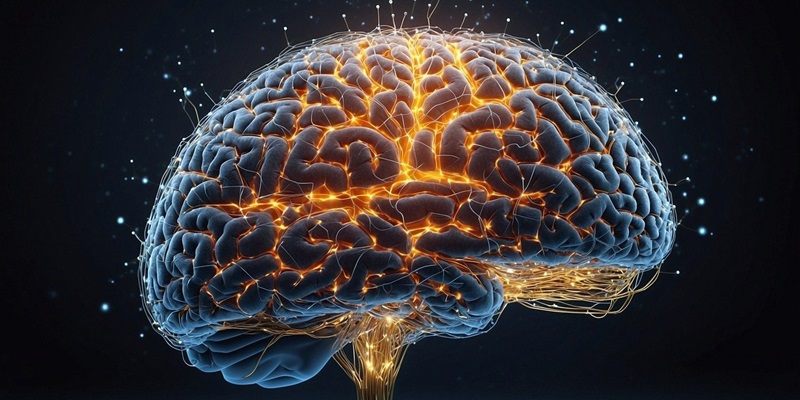Energy efficiency has become a pivotal aspect in the development of smart grids as the global demand for energy continues to rise. As traditional grids struggle to support the growing energy needs, advanced technologies like Artificial Intelligence (AI) are playing a crucial role in optimizing energy consumption. AI, specifically enhanced search algorithms, has the potential to revolutionize how energy is managed and utilized.
Role of AI-Enhanced Search Algorithms in Improving Energy Efficiency
One of the primary strengths of AI lies in its ability to analyze vast amounts of data and uncover hidden patterns that may go unnoticed by human analysts. By harnessing machine learning algorithms, AI can process massive volumes of data generated by smart grids and extract valuable insights that help enhance energy efficiency.
Identifying patterns and insights that humans may overlook
AI-enhanced search algorithms can sift through complex data sets, such as energy consumption records, weather patterns, and historical data, to identify patterns that human analysts may overlook. These algorithms can reveal correlations and trends, enabling grid operators to make informed decisions about energy distribution, peak demand periods, and potential areas for optimization.
Insights and Benefits Provided by AI-Enhanced Search Algorithms
AI algorithms can analyze energy consumption patterns to identify inefficiencies and areas for improvement. By understanding how energy is used and wasted, grid operators can develop strategies to optimize energy distribution and reduce overall consumption.
Identifying peak demand periods
AI-enhanced search algorithms enable the accurate identification of peak demand periods based on historical data, weather forecasts, and real-time inputs. This information helps grid operators manage energy supply more effectively, reducing strain on the grid during periods of high demand and minimizing the risk of blackouts or brownouts.
Recognizing areas for energy optimization
Through data analysis and pattern recognition, AI algorithms can identify specific areas within a grid where energy efficiency can be improved. This insight enables targeted infrastructure upgrades, such as replacing old equipment or implementing demand-response systems, to maximize the effectiveness and sustainability of the grid.
Accurately predicting energy demand
One of the key benefits of AI-enhanced search in smart grids is its ability to predict energy demand with a high level of accuracy. By analyzing historical data, weather patterns, and real-time inputs, AI algorithms can forecast future energy demand, allowing grid operators to adjust supply accordingly and avoid unnecessary energy waste.
Detecting anomalies that may indicate energy theft
AI algorithms can analyze data from smart meters and rapidly identify anomalies that may indicate energy theft or tampering. By detecting and preventing such illegal activities, AI-enhanced search algorithms help utility companies improve their revenue streams and ensure a fair distribution of energy resources.
Preventing energy theft to improve revenue streams
Energy theft poses a significant challenge for utility companies, resulting in revenue losses and unequal distribution of resources. With AI-enhanced search algorithms, companies can detect irregularities in energy consumption data, alerting them to potential cases of theft and enabling swift action to mitigate revenue loss.
Ensuring a fair distribution of energy resources
AI algorithms also contribute to the fair distribution of energy resources. By detecting inconsistencies in consumption patterns, AI-enhanced searches can highlight areas where resources are not allocated equitably. This insight enables utility companies to address discrepancies and ensure a more balanced provision of energy across their service areas.
Personalized energy consumption recommendations
AI-powered search algorithms can provide personalized recommendations to consumers on how to reduce energy consumption and conserve resources. By analyzing individual usage patterns, smart meters, and other data sources, AI can suggest specific actions, such as adjusting thermostats, optimizing appliance usage, or adopting efficient lighting options, helping consumers make informed decisions to reduce their energy footprint.
Enhancing the Reliability and Resilience of Smart Grids
AI-enhanced search algorithms continuously monitor the grid, ensuring real-time visibility into its operations. By analyzing data in real-time, AI can detect potential faults or failures, allowing for immediate intervention before they escalate into larger issues. This proactive approach significantly enhances the reliability and resilience of smart grids.
Detecting and predicting potential faults or failures
Through data analysis and pattern recognition, AI algorithms can identify early warning signs of faults or failures within the grid infrastructure. By predicting and addressing potential problems in advance, utility companies can minimize downtime, reduce maintenance costs, and ensure uninterrupted energy supply to customers.
As smart grids continue to evolve, AI will undoubtedly play an increasingly important role in optimizing energy efficiency. AI-enhanced search algorithms empower utility companies with unprecedented capabilities to analyze data, identify patterns, prevent energy theft, and provide personalized recommendations to consumers. By leveraging the power of AI, smart grids can become more reliable, resilient, and sustainable, paving the way for a greener and more efficient energy future.

